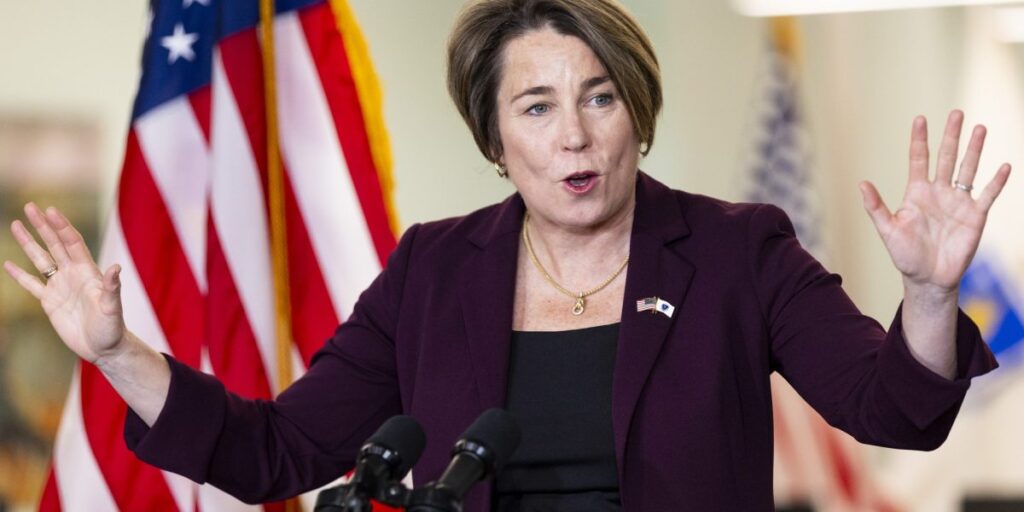Taxing the wealthy is a contentious issue, but Massachusetts claimed an early victory this week, announcing that the state's tax on high-income earners has generated $1.8 billion in additional revenue. With three months left in the state's fiscal year, that revenue is already $800 million more than officials, including Gov. Maura Healey, had planned to use for the tax increase, according to the Statehouse News Service.
Funds from the so-called fair share tax would go toward promoting transportation and education, including providing free lunches to all public school children in the state, Healey's office said. luck The Legislature budgeted last fall, and it's still unclear where the surplus will go, but it will likely go toward education and infrastructure capital projects. “Those are two areas of great need,” Senate Budget Director Michael Rodriguez said on the Senate floor, according to the Statehouse News Service.
The tax, which would impose a 4% surcharge on income over $1 million a year, was approved by voters in 2022 but was quickly criticized by opponents who warned it would drive out high-income earners. Florida and New Hampshire, which don't tax income, have long been popular destinations for Massachusetts residents looking to escape the state's tax system, according to Bloomberg Tax. Now, in the aftermath of the Massachusetts tax, progressive advocates are claiming victory.
“Opponents of the fair share amendment have argued that billionaires would flee Massachusetts rather than pay new taxes, but they are proven wrong every day,” said Andrew Farnitano, a spokesman for Raise Up Massachusetts, the group that promoted the proposal. The Boston Globe.
“With this money from the ultra-wealthy, we can further improve our public schools and universities, invest in our roads, bridges and public transportation, and begin to build an economy that works for everyone,” Farnitano continued.
The right-leaning Massachusetts Fiscal Alliance denounced the tax. “The short-term fiscal benefits the state would derive from the income tax would outweigh the long-term negative impacts this tax would have on the state,” spokesman Paul Craney told the Statehouse News Service. “This tax drives out higher-income earners and makes it much easier for taxpayers who are regularly impacted by this tax to decide to reside in a more tax-friendly state.”
A report released in January 2022 by the Tufts University Center for State Policy Analysis estimated that the tax would affect fewer than 1% of Massachusetts households each year, and that while some high-income earners might move to other states, the number of people moving would likely be small.
News of the Massachusetts tax's first-year success is emboldening progressives in other states. In neighboring New York, the group Invest in Our New York has called for a similar tax, writing that Massachusetts' experience “underscores that taxing the ultra-wealthy is not only politically feasible, but a fiscal imperative.”

